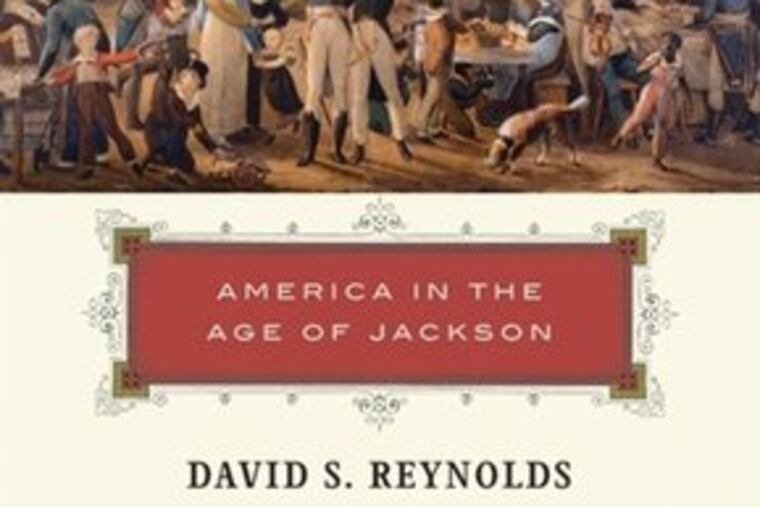Andrew Jackson histories illuminate his age, and ours
These two excellent new histories help explain the continuing interest for our time in the Andrew Jackson presidency. The clue is in the adjective both authors' publishers use to describe that time: turbulent, a word that repeats daily in our own international and financial news.

Andrew Jackson
in the White House
By Jon Meacham.
Random House.
484 pp. $30.
America
in the Age of Jackson
By David S. Reynolds.
HarperCollins.
433 pp. $29.95.
Reviewed by David Walton
These two excellent new histories help explain the continuing interest for our time in the Andrew Jackson presidency. The clue is in the adjective both authors' publishers use to describe that time:
turbulent
, a word that repeats daily in our own international and financial news.
Jon Meacham, editor of Newsweek and author of
Franklin and Winston
, a wonderfully readable account of the wartime friendship between President Franklin Roosevelt and British Prime Minister Winston Churchill, has written a similarly readable behind-the-scenes history of Jackson's White House years (1828-36).
It was Jackson, general at the Battle of New Orleans and at the time America's greatest living war hero, who defined party politics and the power of the presidency as we know it today. It was Jackson who asserted for the first time the power of the common people over the privileged elite; Jackson who (shamefully, in history's verdict) broke treaty settlements with the indigenous tribes holding land east of the Mississippi, and moved them west; Jackson who broke the national bank.
It was also Jackson who introduced party politics into American government, dismissing 919 officeholders - almost 10 percent of the government - because they represented his political opposition. This compares with only two such firings by his predecessor, John Quincy Adams, and 71 by his six predecessors combined.
Jackson was a shrewd and complex individual, often underestimated in his time, and Meacham gives him his due in an arresting and expertly crafted narrative both thoroughly researched and intellectually stimulating. This book is highly recommended for the thoughtful general reader who, weary with our own politics, needs to escape and at the same time reflect dispassionately on the nature and course of American governance.
Equally fine in its narrative and mastery of detail is David S. Reynolds' more expansive
Waking Giant
, a history of the social structure and popular culture in the wider era often named "The Age of Jackson," roughly 1815 to 1848, a time of astonishing growth and industrialization, also of considerable social change.
Jackson and his presidency figure large in Reynolds' account. But he reserves equal space for the era's great evangelical and reform movements, its fads and inventions, its growing partisan and regional divisions as the country drifted toward civil war, and its bludgeoning sense of "manifest destiny," as the nation expanded into the west, into Florida and Texas, into the Mexican and British northwest territories now part of the United States.
The period's favorite slang expression, Reynolds says, was: "Go ahead!"
So often, the age of Jackson emerges as a model for our own time - and it is our own time, uncannily and too often uncomfortably, that we read about in these two outstanding books.